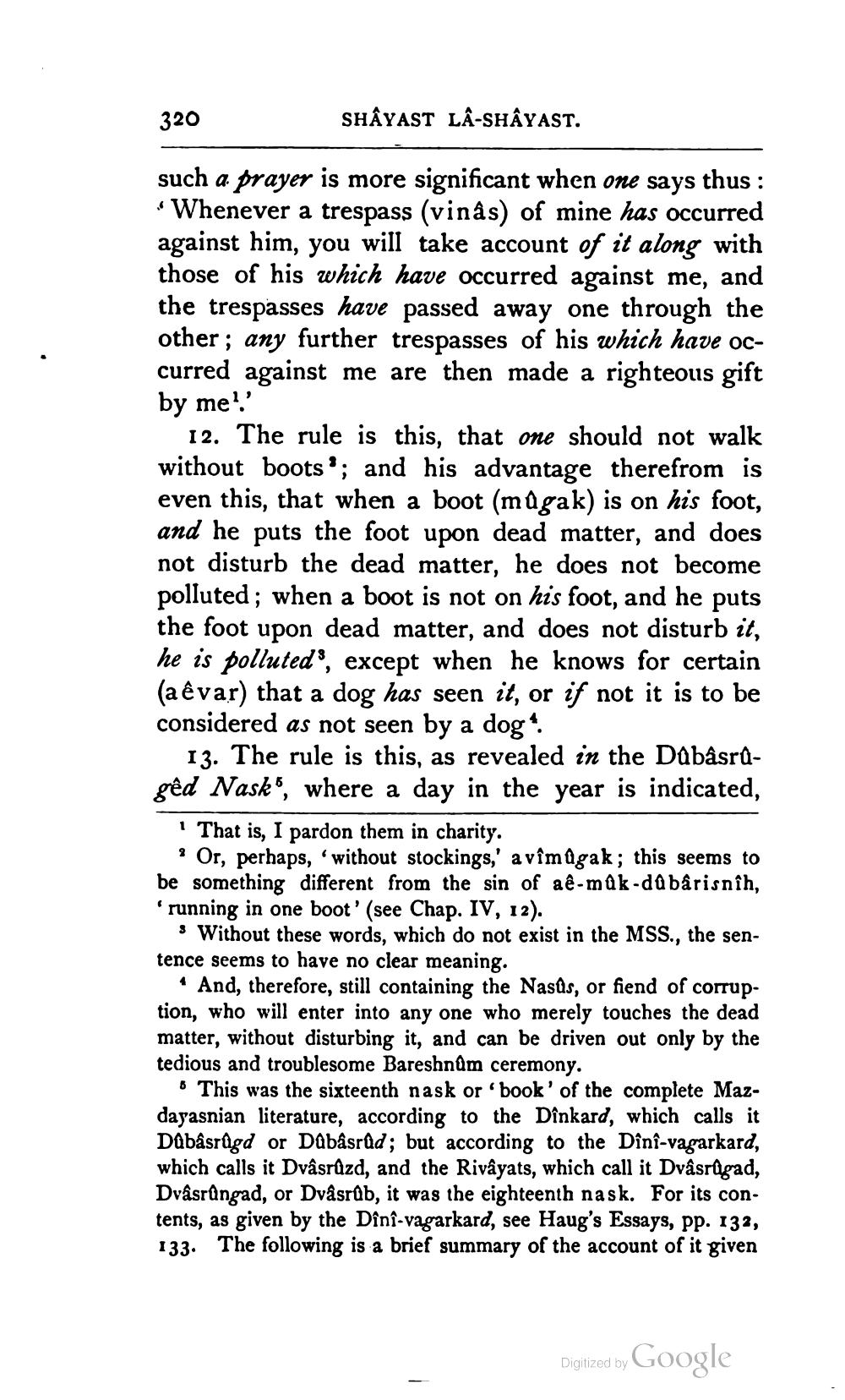________________
320
SHẤYAST LÂ-SHAYAST.
such a prayer is more significant when one says thus :
Whenever a trespass (vinas) of mine has occurred against him, you will take account of it along with those of his which have occurred against me, and the trespasses have passed away one through the other; any further trespasses of his which have occurred against me are then made a righteous gift by me?'
12. The rule is this, that one should not walk without boots'; and his advantage therefrom is even this, that when a boot (magak) is on his foot, and he puts the foot upon dead matter, and does not disturb the dead matter, he does not become polluted; when a boot is not on his foot, and he puts the foot upon dead matter, and does not disturb it, he is polluted, except when he knows for certain (a êvar) that a dog has seen it, or if not it is to be considered as not seen by a dog*.
13. The rule is this, as revealed in the Dabâsrûgêd Nask", where a day in the year is indicated,
"That is, I pardon them in charity.
* Or, perhaps, without stockings,' a vîmūgak; this seems to be something different from the sin of aê-mûk-dů bârisnih, ' running in one boot' (see Chap. IV, 12).
s Without these words, which do not exist in the MSS., the sentence seems to have no clear meaning.
* And, therefore, still containing the Nasūs, or fiend of corruption, who will enter into any one who merely touches the dead matter, without disturbing it, and can be driven out only by the tedious and troublesome Bareshnům ceremony.
• This was the sixteenth nask or 'book' of the complete Mazdayasnian literature, according to the Dînkard, which calls it Dabâsrügd or Dâbâsrdd; but according to the Dînî-vagarkard, which calls it Dvâsrûzd, and the Rivâyats, which call it DvâsrŲgad, Dvâsrangad, or Dvâsrûb, it was the eighteenth nask. For its contents, as given by the Dînî-vagarkard, see Haug's Essays, pp. 132, 133. The following is a brief summary of the account of it given
Digitized by Google




